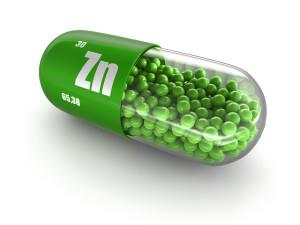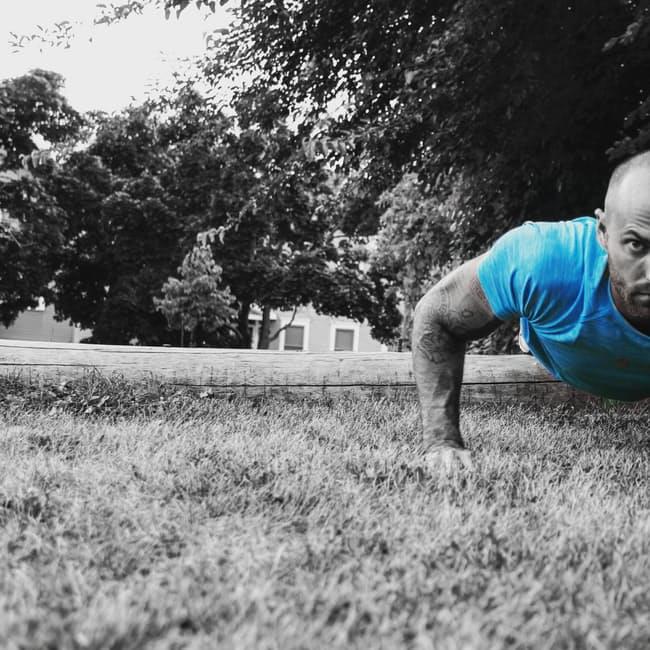(Women read on and take note- we too have similar hormones)
Yes, for the men we’re talking testosterone (and ladies I’m talking progesterone). Those muscle-building hormones. But I’m not going to recommend that you take any anabolic steroid hormones or anything like that.
I am going to give you two solid tips on how you can boost your testosterone levels naturally with supplements.
Tip #1
Get enough zinc
Zinc is an essential mineral that helps with a number of processes around the body, over 300 enzymes reactions to be more precise, WOW!
Zinc helps your immune system, helps to produce critical proteins for DNA and also helps with wound healing. Enough zinc is necessary to maintain healthy skin and for optimal ability to taste and smell. Zinc is an antioxidant and can be supplemented to support optimal levels of testosterone because it helps the enzymes that convert cholesterol into testosterone.
Zinc is found mostly in red meat, poultry, egg yolks, shellfish, some plants can also provide zinc such as beans and nuts however the best dietary source of zinc is oysters.
The daily recommended dose of zinc for men is 11 mg/day (for women it’s 8 mg/day). Low zinc levels are VERY COMMON in both men and women but tend to occur in vegetarians/vegans, athletes, and people who sweat a lot (zinc is lost in sweat).
And, now for the clencher, low zinc levels have been linked to low testosterone.
Side Note: low zinc levels can also play a part in poor fertility rates due to zincs major role in sperm motility!
Of course, if you don’t get enough zinc in your diet you can always supplement.

Before you do however, consider a few things:
1. It is possible to get too much zinc so unless your Nutritional Medicine Practitioner tells you, never take more than 40 mg/day. For many people, just 5-10 mg/day is enough to prevent deficiency.
2. Zinc supplements can also interact with certain medications so be sure to check with your Nutritional Medicine Practitioner or Doctor to find out if zinc supplements are safe for you.
3. Zinc supplements are best taken 2-hours away from any medications (if it’s safe to use it at all while taking those medications) and should be taken with food.
Tip #2
Get enough Vitamin D
Vitamin D, the “sunshine vitamin” is the most common nutrient that we in Australia just simply don’t get enough of. Shocking I know!
Not only is it not very abundant in foods but as we are a very sun safe country, often, we actually miss out on the sunlight to produce the adequate levels we need year-round.
Vitamin D is known to help us absorb calcium from our foods and is also necessary for our immune system, nervous system, and muscular system. As with zinc if you’re deficient in this nutrient you may experience increased testosterone levels after supplementing.
Vitamin D deficiency is most commonly associated with bone conditions such as rickets in children and osteoporosis in adults.
Side Note: That’s right, you need Vitamin D, NOT calcium to combat bone disease, a very common and scary misconception!
It is a fat-soluble vitamin and is found in fatty fish, organ meats, and egg yolks. Unfortunately, it isn’t abundant in most other un-fortified foods.
The bottom line with vitamin D is, that you may need to supplement. Of course, if you’re always outside in the sun or eat fatty fish every day you may be the exception.

You can always ask your doctor to check your blood levels to be sure because Vitamin D is another one of those nutrients where more is not always better.
Here are a few tips to supplement with Vitamin D safely and effectively:
1. Follow your Nutritional Medicine Practitioners instructions. Never supplement with more than 4,000IU/day unless its specifically
2. As with zinc (and most other supplements) you should check with your doctor or pharmacist if you’re taking any medications.
3. Take your vitamin D with some fat to help your body absorb this vitamin. It is often recommended that you take it with the largest meal of the day.
Summary:
If you aren’t getting enough zinc and/or Vitamin D every day your testosterone levels may be a low and could be impacting more things than your muscles gains!
Check-out this week’s recipe for Vitamin D and Zinc Rich Honey Sesame Salmon

